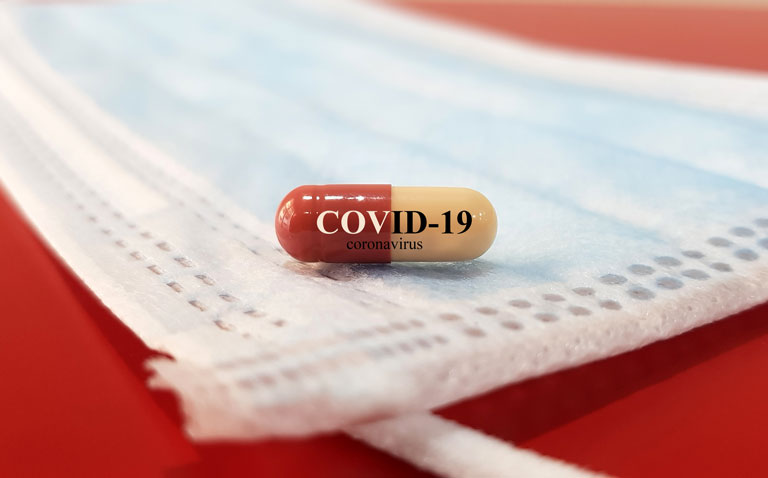Oral nirmatrelvir and ritonavir use in symptomatic COVID-19 patients with a high-risk of disease progression significantly reduced this risk
Giving oral nirmatrelvir and ritonavir to patients with COVID-19 within three days of symptom onset and a potentially high risk for disease progression has been shown to reduce that risk by 89% compared to placebo. This was the conclusion of a randomised trial by the manufacturer, Pfizer.
While the introduction of COVID-19 vaccines have led to a significant reduction in the level of hospitalisation of patients, many individuals with risk factors remain at an increased risk of more severe disease. In a 2021 meta-analysis, it was concluded that patients with hypertension, obesity, diabetes and cardiovascular disease had more COVID-19 severity and mortality respectively. Given the existence of these factors, it is necessary to have treatments which can halt the progression of an infection to more severe disease, shorten the recovery period and ultimately reduce the burden on healthcare systems.
Within the COVID-19 virus, the enzyme 3-chymotrypsin–like cysteine protease (Mpro) is vital for replication and oral nirmatrelvir is an anti-viral agent which targets this enzyme. Moreover, research has shown that nirmatrelvir is metabolised by CYP3A4 and that addition of a low dose of ritonavir, favourably enhanced nirmatrelvir pharmacokinetics.
For the present Phase II-III randomised trial, the authors evaluated the combination of oral nirmatrelvir 300mg and 100mg of ritonavir every 12 hours for 5 days, in non-hospitalised adults with mild-to-moderate COVID-19 but who also had risk factors for progression to severe disease. Enrolled patients were randomised 1:1 to the treatment combination or matching placebo. The primary objective of the trial was to compare the proportion of patients with COVID-19 hospitalised or who died over a 28 day period after randomisation, compared to placebo. This comparison was made at two time-points: after three and five days of treatment.
Oral nirmatrelvir and COVID-19 outcomes
A total of 2246 patients with a median age of 46 years (51.1% male) were randomised to active treatment (1120) or placebo. The most common coexisting conditions associated with a risk of progression to severe COVID-19 were a BMI of 25 or above (80.5%), current smoking (39.0%) and hypertension (32.9%). In addition, 61.0% of participants had two or more coexisting conditions.
In the final analysis, among 1379 patients treated with oral nirmatrelivir and ritonavir and placebo, within less than 3 days of symptom onset, 5 patients in the nirmatrelivir and ritonavir group and 44 in the placebo arm, were hospitalised for COVID-19 or died within 28 days. This corresponded to an 88.9% relative risk reduction in the primary objective. When patients were treated less than 5 days after the onset of symptoms, 0.77% of the oral nirmatrelvir and ritonavir group and 6.31% of the placebo group met the primary outcome, giving a relative risk reduction of 87.8%.
Data on the viral load in both groups showed that when treatment was started within 3 days of symptom onset, the load was 10-times lower in the oral nirmatrelvir and ritonavir group compared to placebo. In addition, the incidence of adverse effects was similar between the two groups.
The authors concluded that treatment with oral nirmatrelvir and ritonavir early in COVID-19 illness, reduced disease progression and viral load.
Citation
Hammond J et al. Oral Nirmatrelvir for High-Risk, Nonhospitalized Adults with Covid-19 N Engl J Med 2022










